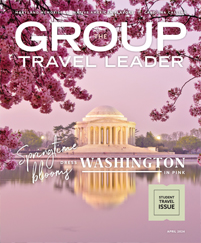Believe it or not, travel is getting better.
Don’t get me wrong — 2022 has had more than its share of challenges. And those challenges come after two years of unthinkable disruption in our industry. But when you stop and consider where we’ve been since 2020, the current state of travel in 2022 doesn’t look too bad. And the future looks even better.
Of course, it’s impossible to predict the future. But based on what I’ve been experiencing on the road recently, I’m feeling optimistic about where the travel experience is headed. Here are some reasons why.
COVID restrictions are finally gone.
In all but the most risk-averse communities, mask mandates, testing requirements and vaccine passports have become a thing of the past. Travelers have the freedom to go where they want when they want, without thinking about COVID-19. People are still welcome to take any precautions they deem wise. But there are few governments or corporations forcing those precautions on people who don’t agree with them. After nearly three years, that’s a blessing.
Labor issues are sorting themselves out.
Travel and hospitality companies — along with many other industries — had enormous difficulty retaining workers in 2020 and 2021. This led to severe limitations in the levels of service travelers could expect. And while the industry is still understaffed, companies have found ways to adjust, and consumers have tweaked their expectations. Your hotel room may not be cleaned on a daily basis, but you probably won’t have the same trouble finding a restaurant that you did last year.
Technology is improving experiences.
Travel companies have made great technical strides in recent years, and many used the downtime during the pandemic to invest in tech upgrades that make experiences better for their customers. Before the pandemic, many motorcoaches didn’t have Wi-Fi (or it didn’t work). Today, most coaches have broadband internet service, and it seems to work well. The same is true for airplanes, where you can now get high-speed internet for as little as $5 per flight. And airlines, hotel companies and other travel companies have continued improving their mobile apps, making it easier than ever to check in, change plans and take care of other issues that once required a call to customer service.
Travelers have become more resilient.
One of the downsides of the travel industry is it has often been very sensitive to economic, political and cultural forces. Traditionally, a recession, high gas prices and even political unrest abroad would make a significant impact on Americans’ travel plans. But today, that doesn’t seem to be happening. Despite very high fuel prices, inflation, a looming recession and the war in Ukraine, demand for travel remains high. Perhaps this is still a result of the pent-up demand experienced during the pandemic. Or maybe it means travelers have learned to seize the day.
More people have a seat at the table.
Throughout culture in general and the travel industry in particular, leaders have done a lot of work recently to create access and opportunities for groups of people that have historically been marginalized and underrepresented. And travelers are showing an appetite for experiences that allow them to connect with other cultures in authentic and meaningful ways. More people than ever have seats at the table and moments in the spotlight, and that makes travel better for us all.











